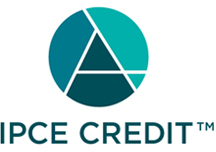Using PROMs to Track SMART PCO Goals in Behavioral Health Settings
Course
Self Paced
Expires: March 13, 2026
In this training, you will learn to how to use PROMs to identify and track person-centered outcome goals in a behavioral health setting.
About this On Demand Training
Using Patient-Reported Outcome Measures to Document and Track SMART Person-Centered Outcome Goals in Behavioral Health Settings
Patient-Reported Outcome Measures (PROMs) are standardized questionnaires that allow individuals to report on how they function or feel with respect to their health, quality of life, mental well-being or health care experience that can be associated with the individual's goals. In this training, you will learn to how to use PROMs to identify and track person-centered outcome goals in a behavioral health setting.
What You Will Learn
- Guide an individual towards identifying what matters most through a discussion on values.
- Define SMART (Specific, Measurable, Attainable, Relevant, & Time-bound) goals.
- Translate what matters most into a SMART person-centered outcome (PCO) goal.
Who Should Attend
- Health care professional
- Healthcare decision maker
- Consultant
- Health plans
- Wellness organization leverages in federal, state, employer
Faculty
Daniela Lawton, MPH
Sarah Sweeney, MSW, MPH
Caroline Blaum, MD, MS
Continuing Education

In support of improving patient care, the National Committee for Quality Assurance is jointly accredited by the Accreditation Council for Continuing Medical Education (ACCME), the American Nurses Credentialing Center (ANCC), and the Association of Social Work Boards (ASWB) to provide Interprofessional Continuing Education for the healthcare team.
This educational activity is approved for: .5 AMA PRA Category 1 CreditTM , .5 Nursing contact hours, and .5 ASWB contact hours.*
This self-paced training grants 1.0 other Continuing Education Unit (CEU) points for PCMH Certified Content Experts.
* Please note – You must attend the entire program to be eligible for total number of contact hours.
DISCLOSURE OF RELEVANT FINANCIAL RELATIONSHIPS
The National Committee for Quality Assurance (NCQA) endorses the Standards of the Accreditation Council for Continuing Medical Education which specify that sponsors of continuing medical education activities and presenters at and planners for these activities disclose any relevant financial relationships either party might have with commercial companies whose products or services are discussed in educational presentations.
For sponsors, relevant financial relationships include large research grants, institutional agreements for joint initiatives, substantial gifts, or other relationships that benefit the institution. For presenters or planning committee members, relevant financial relationships include the receipt of research grants from a commercial company, consultancies, honoraria, travel, or other benefits, or having a self-managed equity interest in a company; or having an immediate family member or partner with such a relationship.
Disclosure of a relationship is not intended to suggest or condone bias in any presentation but is made to provide participants with information that might be of potential importance to their evaluation of a presentation.
Relevant financial relationships exist with the following companies/organizations:
Faculty:
Daniela Lawton, MPH
Caroline Blaum, MD, MS
Sarah Sweeney, MSW, MPH
Additional Planning Committee Members:
Cathy Beckner, MS: None

.jpg?lmsauth=cfe6d0df430fe0e08728a279ab5425c8862495f0)
This training is supported by The John A. Hartford Foundation and The SCAN Foundation.
The John A. Hartford Foundation, based in New York City, is a private, nonpartisan philanthropy dedicated to improving the care of older adults. Established in 1929, the Foundation has three priority areas: creating age-friendly health systems, supporting family caregiving, and improving serious illness and end-of-life care. For more information, visit www.johnahartford.org and follow @johnahartford.
The SCAN Foundation envisions a society where all of us can age well with purpose. We pursue this vision by igniting bold and equitable changes in how older adults age in both home and community. For more information, please visit www.TheSCANFoundation.org.
Here is the course outline:
1. Resource |
2. Recording |
3. Attestation |
Completion
The following certificates are awarded when the course is completed:
 |
CCE Other Certificate |
 |
Physician Certificate |
 |
Certificate of Attendance |
 |
IPCE Certificate |




.png?lmsauth=c974412c78f2cccd0e41bed9be584bd855298ed6)